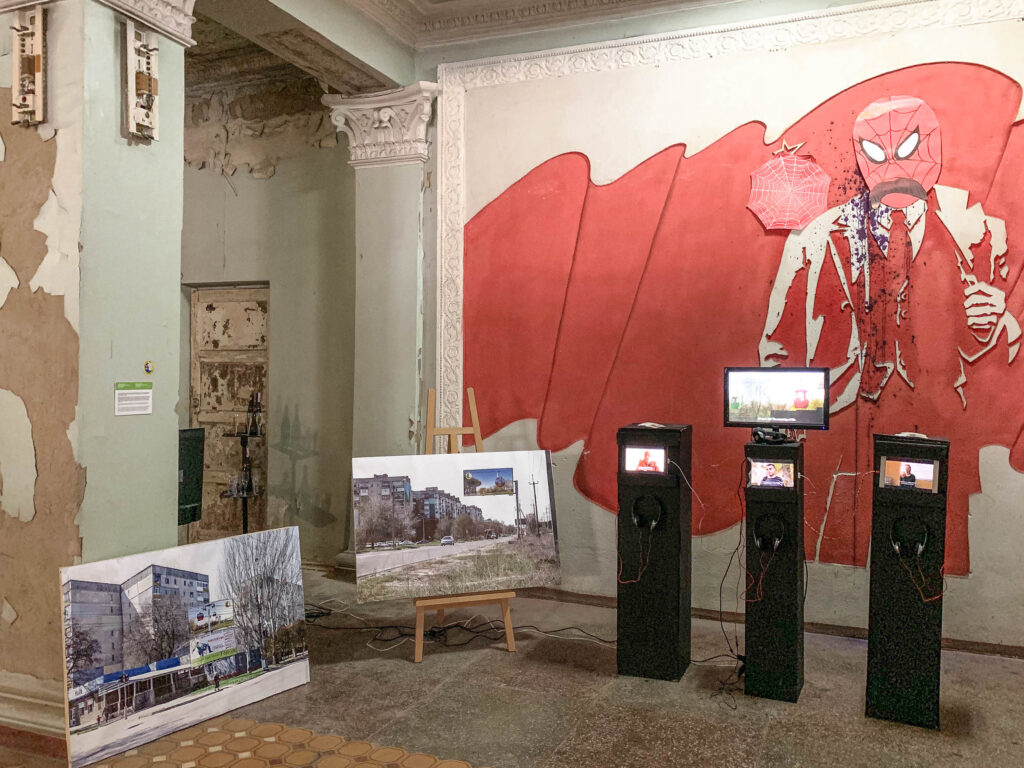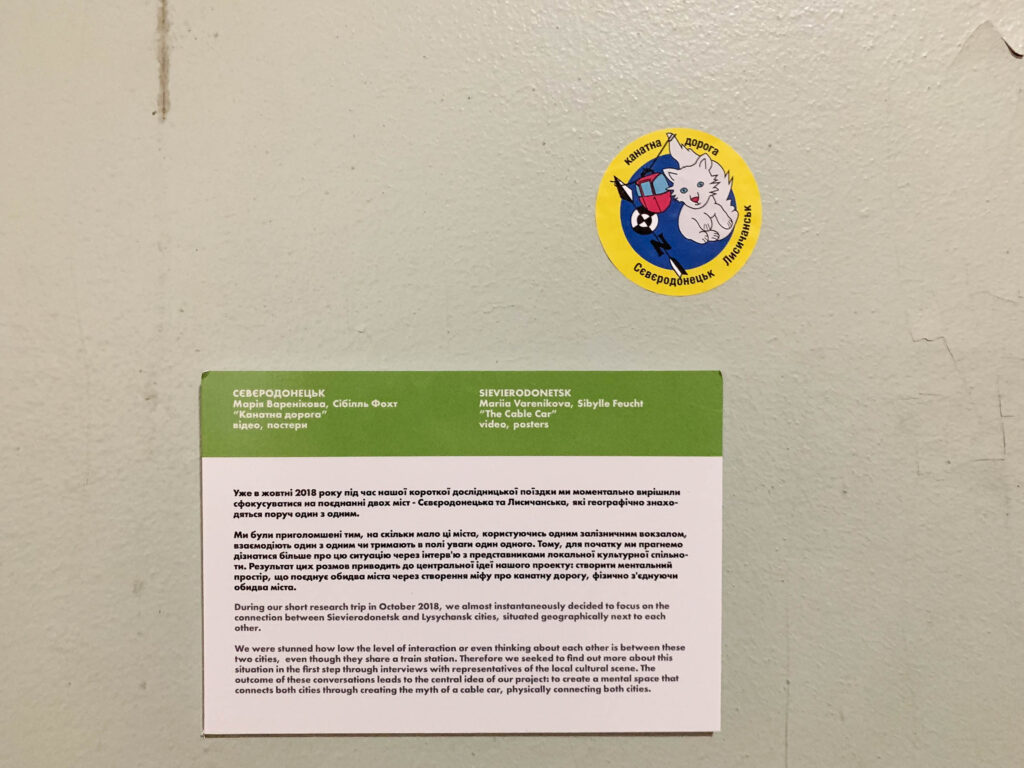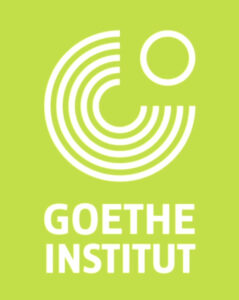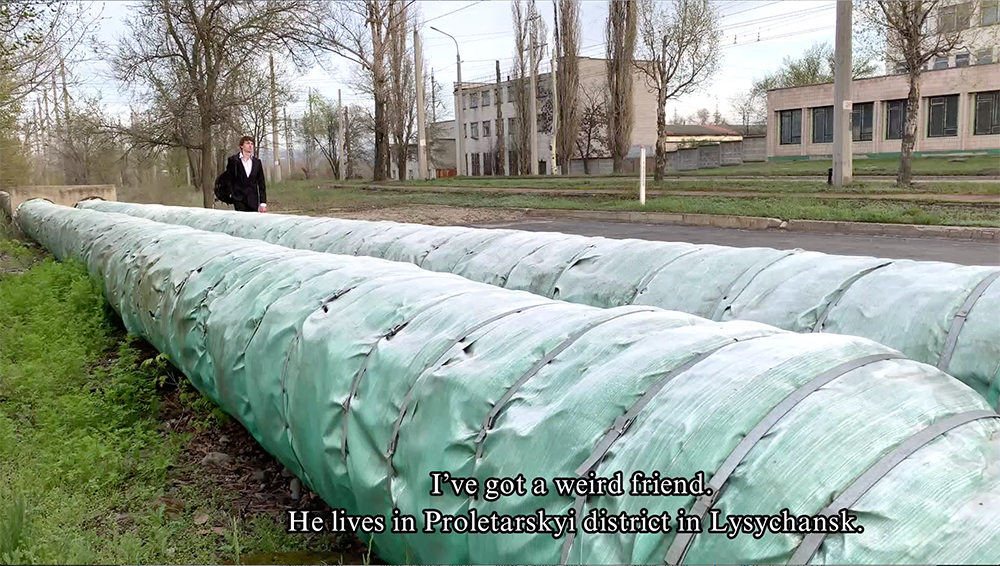Remote and Imminent: Culture and Conflict / Далеко та близько: культура і конфлікт
Presentation of the project ”Remote and Imminent: Culture and Conflict” at Kostiantynivka (UA).
The Remote Imminent East is an open gallery, a concentration of the 8-month project results that has brought us further and closer to the East of Ukraine. In the Remote and Imminent: Culture and Conflict we asked ourselves: what is the cultural landscape of the Eastern Ukrainian cities? Can the culture respond to important social issues and resolve the conflict situations?
The situation with the cities close to the front-line in the East of Ukraine could be perceived differently by the German and Ukrainian participants. For Germans it is an experimental platform for an inquisitive researcher, and for Ukrainians it is an inseparable reality they exist in. This metaphor appeals to the interest of foreign colleagues to explore the proximity of the city to the military :r.one. German researchers are ready to go to Ukraine in an attempt to understand how to overcome aggression, eliminate tension in society, and how to preserve peace. For them, it may be essential to investigate the situation particularly in the East of Ukraine or Ukraine could be the other unstable region in the world that they use as a research “laboratory” to find the answers to the critical questions of the emergence of military conftict and peacekeeping.
For the Ukrainian participants, the situation is somewhat different and more personal. For them, this question can connect to the feeling of patriotism and how they can be useful to their native land without bringing weapons to the arms. They can use this opportunity as a way to see local cities through the world’s optics and try to translate it into the context of specific cities. They can manage the passion for overcoming “block holes” of the Ukrainian history in the East and taking into account in their researches / projects the lessons leamed, or it can be just a desire to find peaceful formulas through cultural methods.
Our participants tried to find answers about the role of historical memory and the impact of the social context on cities and people. Look beyond the boundaries of existing urban landscapes through artistic imaginations. Travel in time and space, between the past and the future and stay in the present, leam about the experience of German cities and their gradual integration after the fall of the Berlin Wall in 1989. History can be learned, culture helps to overcome it.
The Open Gallery is part of the Remote and Imminent: Culture and Conftict project initiated by the Goethe Institute in Ukraine and the City Code program, Garage Gang NGO, funded by the Federal Ministry of foreign Affairs of Germany.





